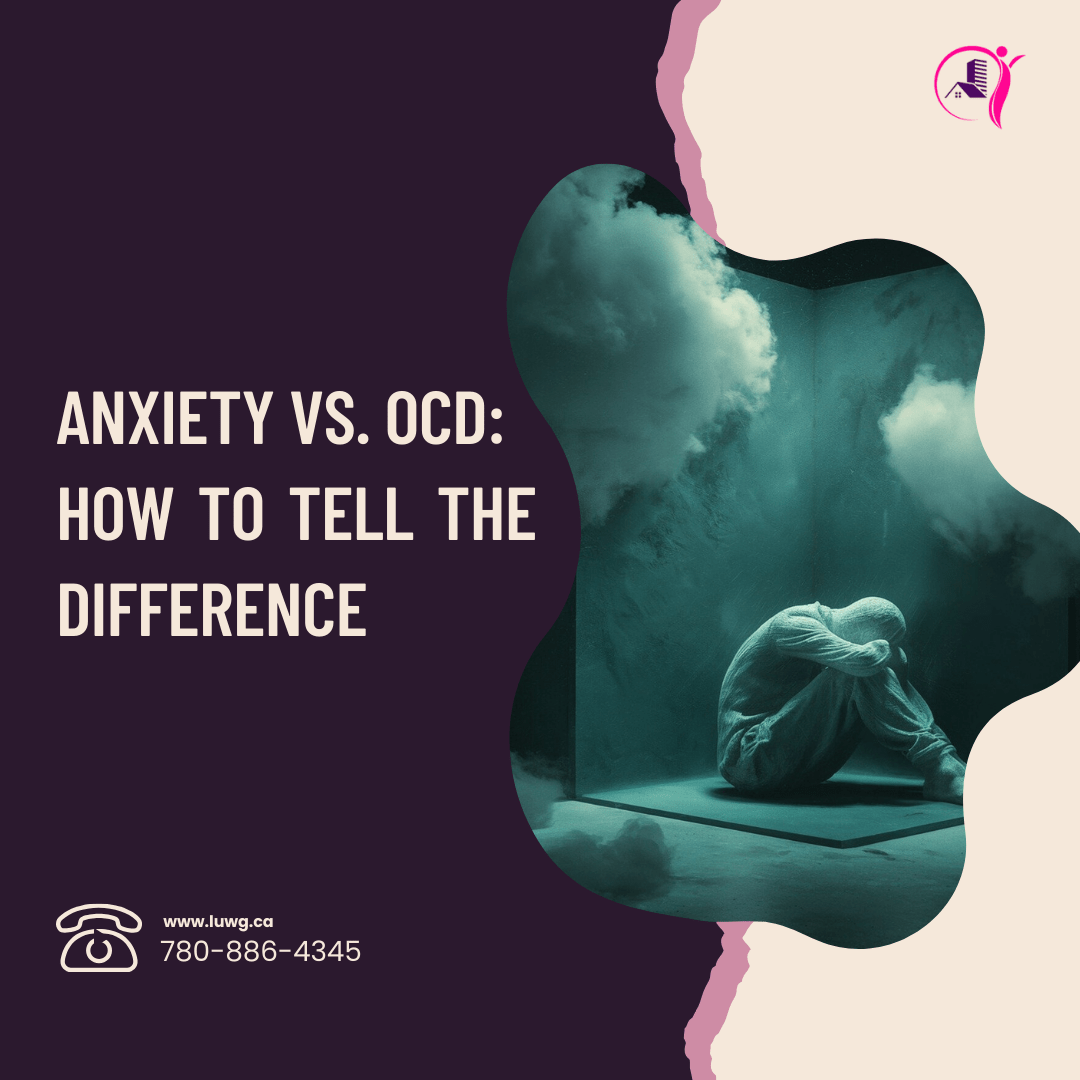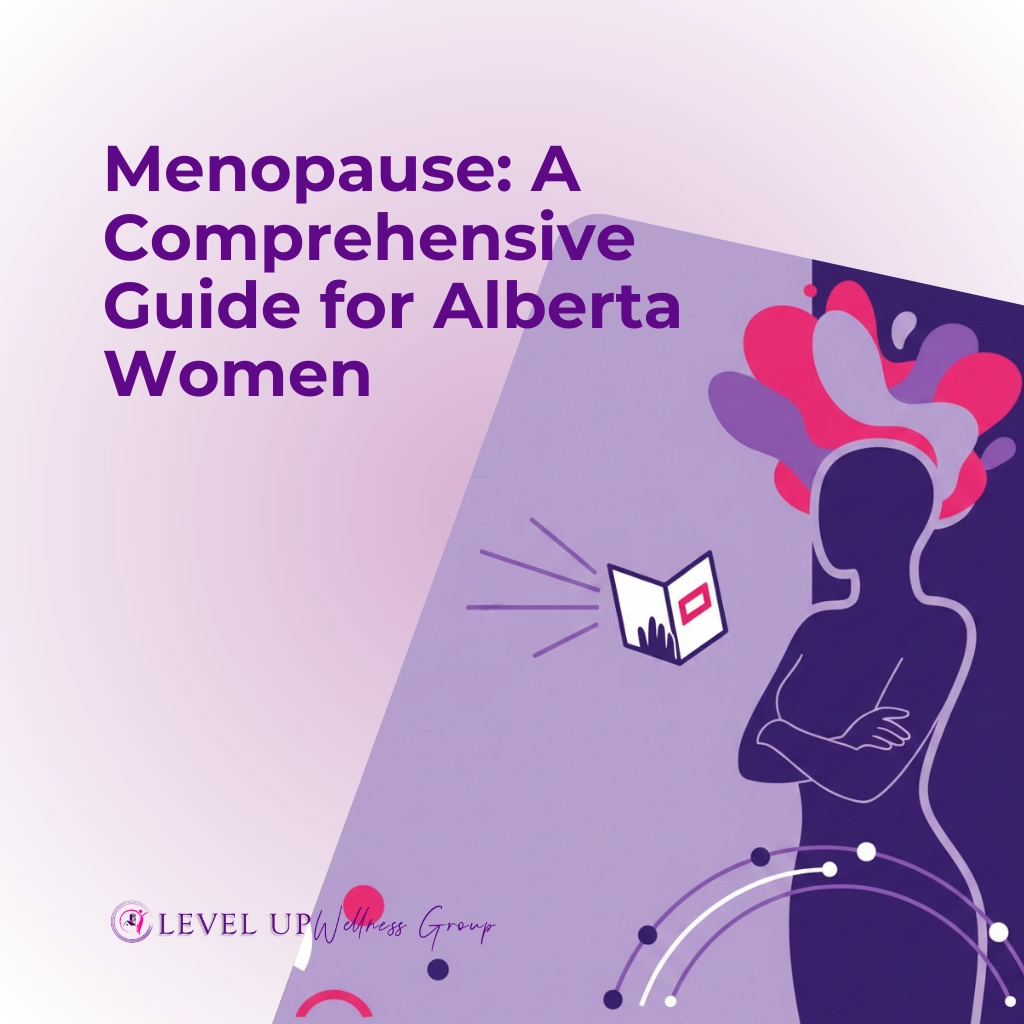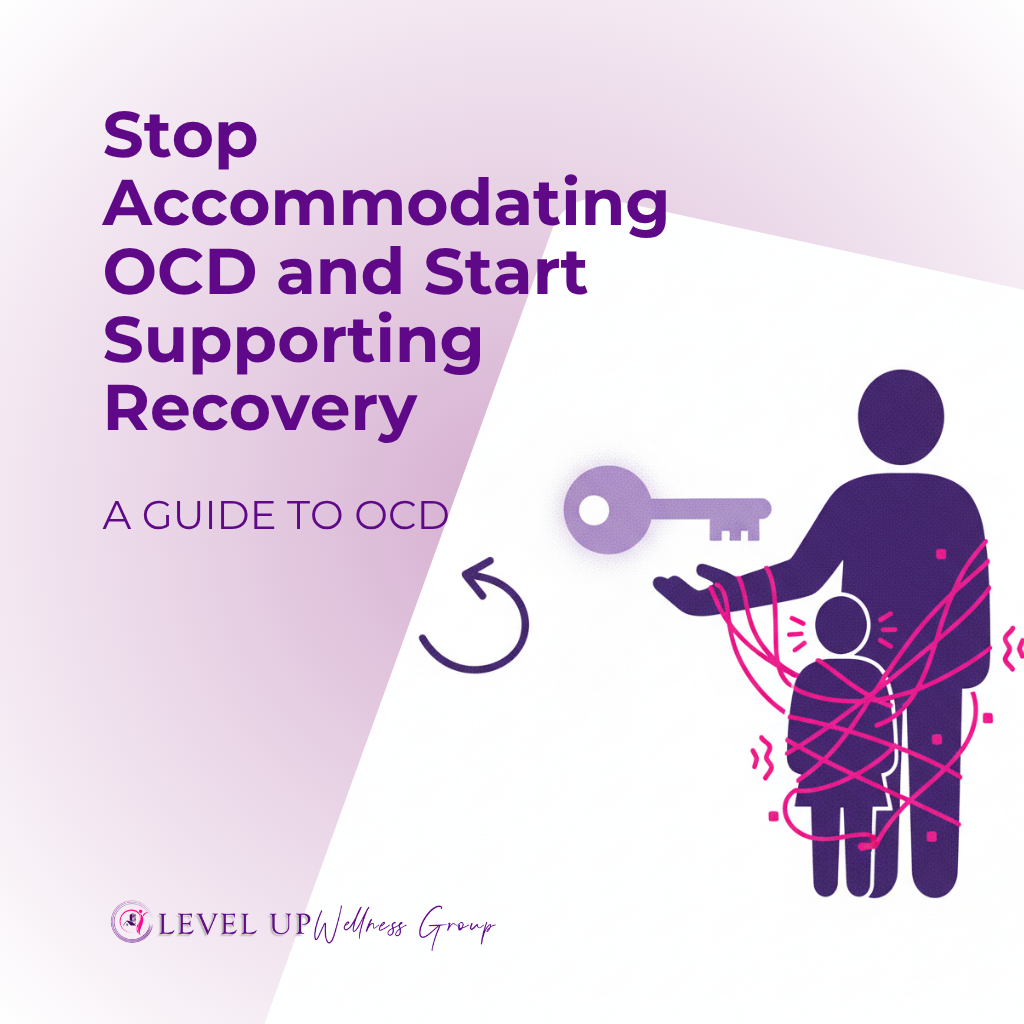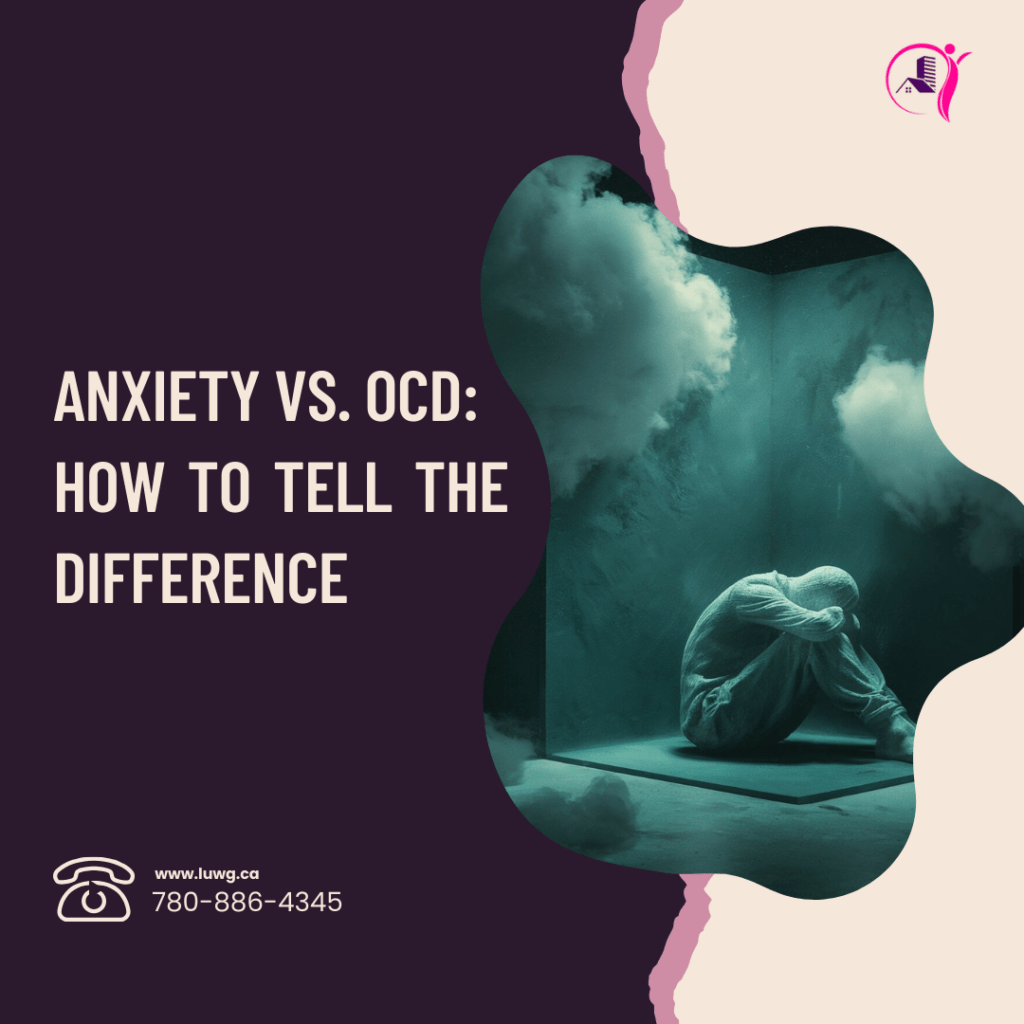
Both anxiety and obsessive-compulsive disorder (OCD) involve fear and distress, but they work in different ways. While anxiety is usually about real-life concerns, OCD creates intrusive, irrational worries that push people to perform compulsions to feel safe or “just right.”
Knowing the difference can help you find the right support!
For more information visit OCD and Anxiety pages:
What is Anxiety?
Common Signs of Anxiety:
- Excessive worry about real-life problems (work, health, relationships, finances).
- Physical symptoms like a racing heart, sweating, dizziness, or trouble breathing.
- Avoiding situations that trigger stress.
Restlessness, irritability, or trouble sleeping. - Feeling tense or on edge most of the time.
Example:

What is OCD? (Hint: It’s More Than Cleanliness!)
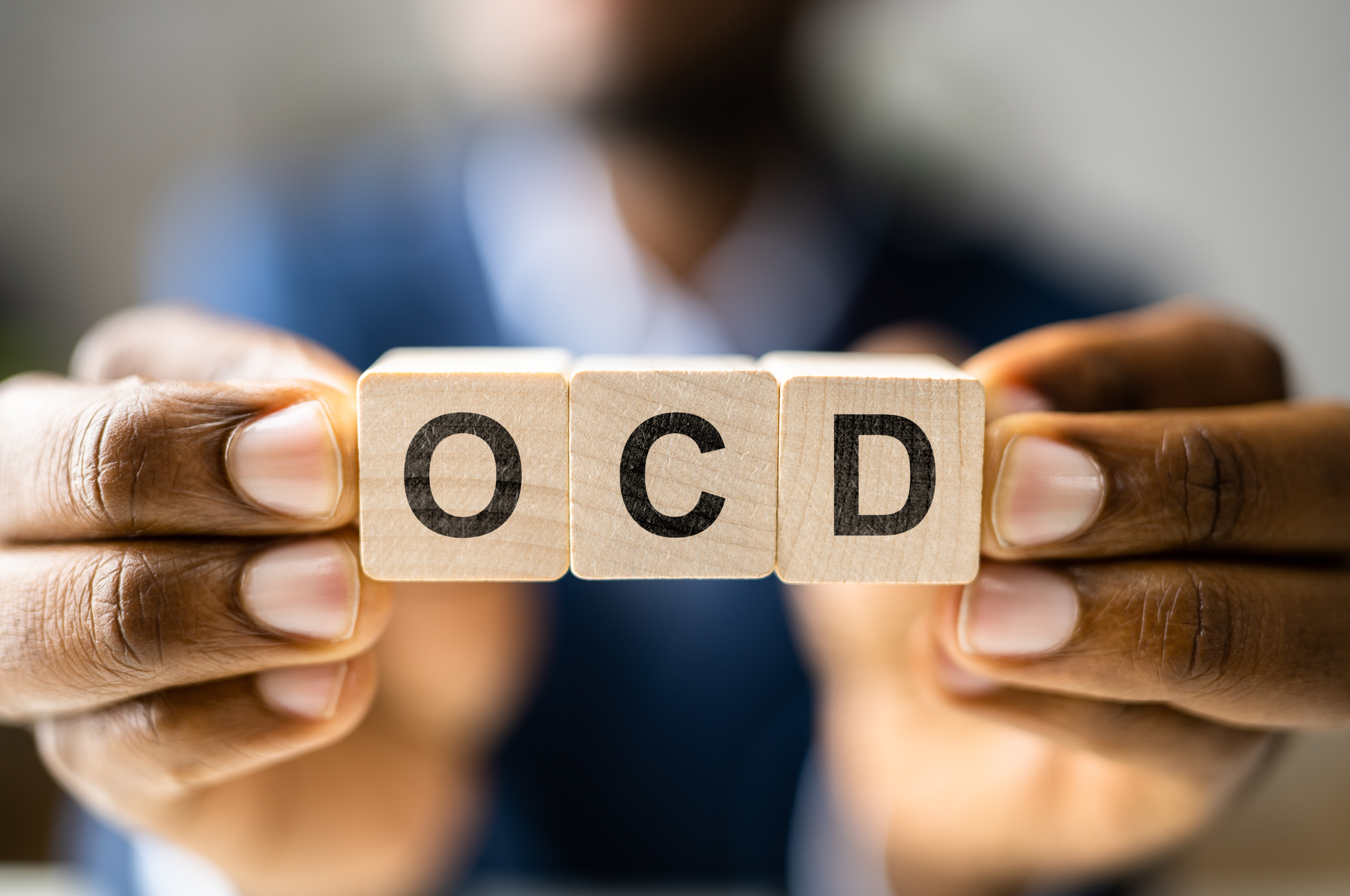
OCD isn’t just anxiety—it’s a disorder involving intrusive thoughts (obsessions) and compulsions (rituals or behaviors) meant to relieve distress. The difference is how these thoughts feel: anxiety is usually tied to real-life worries, but OCD makes people feel like they must perform certain actions to prevent something bad from happening, even when it doesn’t make logical sense.
Common Signs of OCD:
- Intrusive thoughts that won’t go away (e.g., What if I hurt someone by accident? What if my hands are still dirty?).
- Compulsions (repetitive behaviors or rituals) to relieve distress (e.g., excessive handwashing, checking doors, counting, or avoiding “bad” numbers).
- Doubt and uncertainty : even if you check something multiple times, you don’t feel reassured.
- Feeling “stuck” in a loop of obsessions and compulsions.
- Significant time spent on compulsions (often an hour or more per day).
- No lasting relief : unlike anxiety, where relaxation helps, OCD keeps demanding more reassurance.
Example:
Key Differences Between Anxiety and OCD
| Feature | Anxiety | OCD |
|---|---|---|
| What causes distress? | Worries about real-life problems | Intrusive thoughts that feel irrational but overwhelming |
| How does it feel? | General nervousness or unease | Extreme distress that feels urgent |
| Can logic help? | Yes, reassurance and coping skills can reduce anxiety | No, even when a person knows their thoughts don’t make sense, they feel forced to act on them |
| How do people respond? | Avoidance, overthinking, stress | Performing compulsions (rituals, checking, repeating actions) to feel “safe”, reassurance seeking and avoidance. |
| Does it go away? | Often fades when the stressor is gone | Persists, and compulsions only provide temporary relief |
The Reality of OCD and Anxiety: Delays, Misdiagnoses, and the Need for Better Training
Obtaining an accurate diagnosis for Obsessive-Compulsive Disorder (OCD) often involves significant delays, primarily due to challenges in distinguishing it from anxiety disorders.
Time to Diagnosis:
- Average Delay: Research indicates that individuals with OCD experience an average delay of 12.78 years from the onset of symptoms to receiving an accurate diagnosis.
- Range of Delays: Other studies have reported delays ranging from 9 to 17 years before individuals receive appropriate treatment for OCD.
Learn more about The Long Journey to an OCD Diagnosis
Factors Contributing to Delayed Diagnosis:
- Symptom Overlap: OCD and anxiety disorders share overlapping symptoms, making differential diagnosis challenging.
- Misconceptions: Common stereotypes, such as associating OCD solely with cleanliness, can lead to misinterpretation of symptoms.
- Stigma and Fear: Individuals may hesitate to report distressing or taboo obsessions due to fear of judgment, further delaying diagnosis.
Get help today:
Need for Professional Training:
Educational Gaps: Many mental health professionals lack specialized training to differentiate between OCD and anxiety disorders, contributing to misdiagnosis
Do You Have Anxiety or OCD?
- If your worries go away with logic, problem-solving, or time, it’s likely anxiety.
- If you feel trapped in a cycle of distressing thoughts and rituals, it may be OCD.
Good news: Both anxiety and OCD are treatable! We have specialists in both areas and under the guidance of Dr. Melody Morin who has completed hundreds of hours in training in OCD in the United States. She has both personal and professional insights to support your healing.


